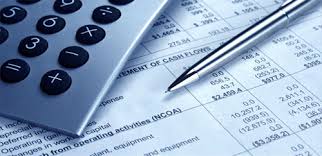 Business Valuations – What is your business worth?
Business Valuations – What is your business worth?
When you are considering to put your business for sale, you need to establish a purchase price. What is your business worth? The question seems simple enough, but the answer can differ on who you ask. For our purposes, let’s take the potential Buyer’s perspective. Afterall, he or she will be cutting the check. A potential business buyer is looking for value based on his/ her potential earnings, and that is really the bottom line. How much will the buyer make from owning your business? This is why, for the majority of main street businesses, you need to adjust the earnings of a business, as reported on the business’s tax returns. This adjustment, is what we Business Brokers, call the Seller’s Discretionary Earnings or SDE.
Why do you need to adjust earnings?
Great question. Why do you need to adjust the earnings reported on a business’s tax returns? Answer: because business owners are purposely (legally) trying to reduce tax liability. So business owners expense items to accomplish tax reductions or to transfer tax liability … for example, an owner can give herself a huge salary, to the point that the business profit is zero. This is legal, right? Now the business have zero tax liability, and now she will report this income, in the form of a salary, on her personal tax returns. This is why we, Business Brokers, call these expenses Discretionary, they are subject to the discretion of the seller.
Seller’s Discretionary Earnings Based Valuation
There are several business valuation methodologies. Asset based approach, earnings based, even market based valuation methods. However, for the vast majority of “main street” businesses with net earnings less than $500,000, the most used valuation method is an earnings based method using a Seller’s Discretionary Earnings calculation and an industry specific multiple of this SDE calculation.
Seller’s Discretionary Earnings Valuation Calculation
What are Seller’s Discretionary Earnings (SDE)? The simple explanation is as follows: when you run a business you want to lower your taxable income, as such the owner will legally apply business expenses to their taxable income statement. However, some of these items benefit the owner and thus are discretionary. Items like: the lease of their car, the owners salary, travel and entertainment, etc.
Calculating seller’s discretionary earnings is the first and most crucial step towards setting the selling price of a business or a business valuation. Once you calculate the true owner’s discretionary earnings you apply a sales multiple and you have your price. Sometimes seller’s discretionary earnings is called business re-casted earnings as well. Under either name, it is the basis for sale pricing and of primary interest to buyers.
Following is a sample of an SDE statement. It differs from an income statement in two ways:
- The income statement reflects the full range of normal and legal deductions, resulting in the lowest-possible bottom line and taxable profit
- The SDE or owner’s cash flow statement presents the full earning power of your business after adding back in one-time, non-recurring purchases and discretionary expenses shown on your income statement but not essential to business operations.
What are Seller’s Discretionary Expenses?
Here is an example of a Seller’s Discretionary Earnings Worksheet; an income statement adjusted to reflect earning potential – called recasting or normalizing your financials.
|
Annual Seller’s Discretionary Earnings |
|
| Annual Revenue | |
| Annual Cost of Sales | |
| Annual Expenses | |
| Annual Net Income | |
| Adjustments for Interest, Depreciation, Tax and Amortization deductions | |
| Add-back for Interest paid on loans | |
| Add-back for Depreciation | |
| Add back for Taxes paid | |
| Add back for Amortization | |
| EBIDTA (Earnings before Interest, Depreciation, Taxes and Amortization | |
| Adjustments for Personal, Discretionary and One-Time | |
| Expenses | |
| Add-back for Owner’s Salary, Payroll Tax, Benefits | |
| Add-back for Family Member Wages, Payroll Tax, Benefits | |
| Add-back for Owner/Family Personal Auto Use | |
| Add-back for Contributions/Donations | |
| Add-back for Fair-Market Rent Adjustment | |
| Add-back for Owner’s Insurance premiums | |
| Add-back for Legal, Accounting, Tax services | |
| Add-back for Owner Retirement Plan contributions | |
| Annual Revenue | |
| Annual Cost of Sales | |
| Annual Expenses | |
| Annual Net Income | |
| Adjustments for Interest, Depreciation, Tax and | |
| Amortization deductions | |
| Add-back for Interest paid on loans | |
| Add-back for Depreciation | |
| Add back for Taxes paid | |
| Add back for Amortization | |
| EBIDTA (Earnings before Interest, Depreciation, Taxes & Amortization) |
|
| Adjustments for Personal, Discretionary and One-Time Expenses | |
| Add-back for Owner’s Salary, Payroll Tax, Benefits | |
| Add-back for Family Member Wages, Payroll Tax, Benefits | |
| Add-back for Owner/Family Personal Auto Use | |
| Add-back for Contributions/Donations | |
| Add-back for Fair-Market Rent Adjustment | |
| Add-back for Owner’s Insurance premiums | |
| Add-back for Legal, Accounting, Tax services | |
| Add-back for Owner Retirement Plan contributions | |
| Add-back for Travel/Entertainment Expenses | |
| Add-back for Subscriptions and Memberships | |
| Add-back for extraordinary, one-time, non-recurring | |
| expenses reflected on Income statements | |
| Adjusted Statement of Projected Annual Seller’s Discretionary Earnings |
|